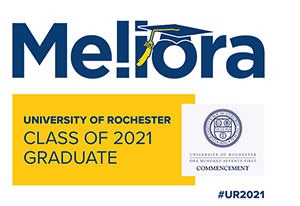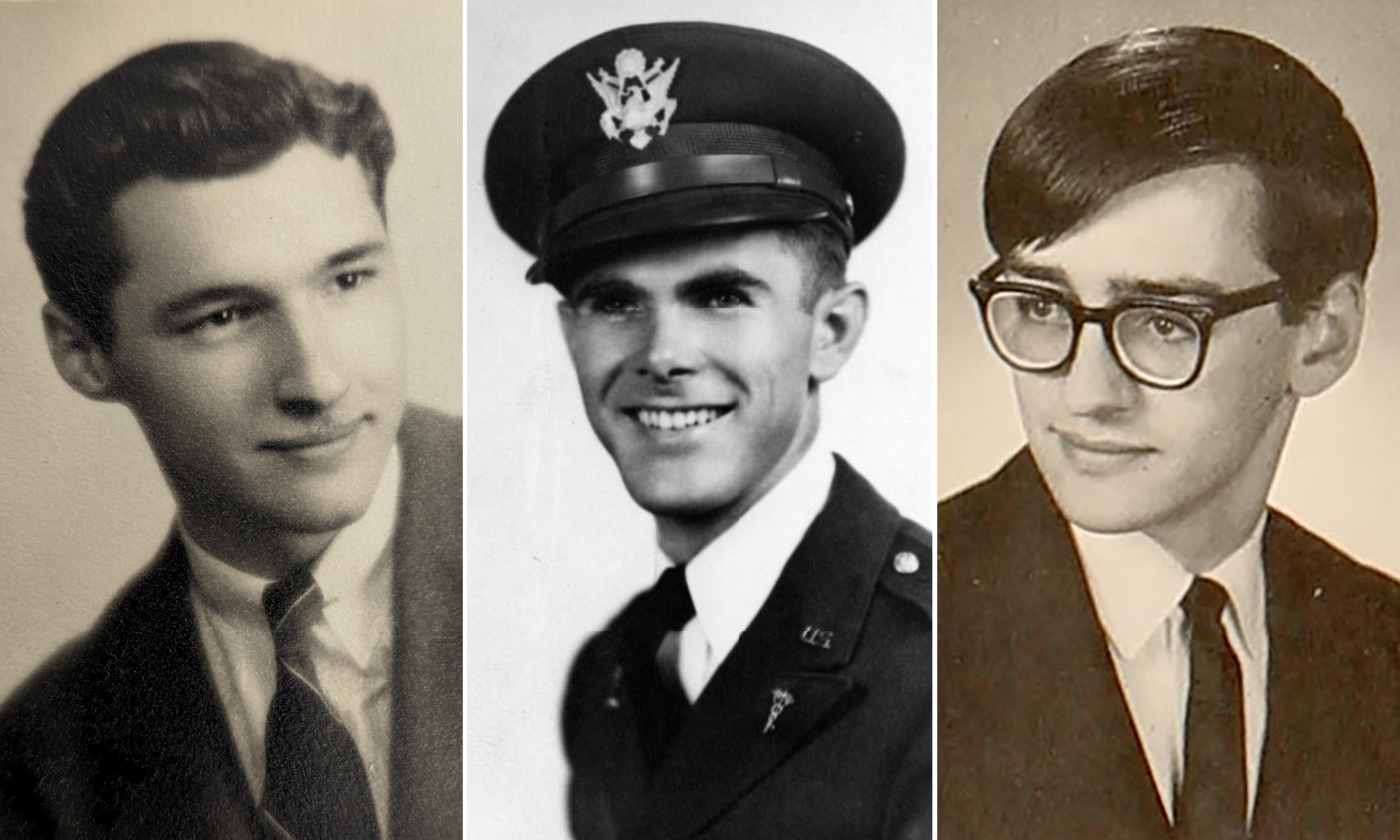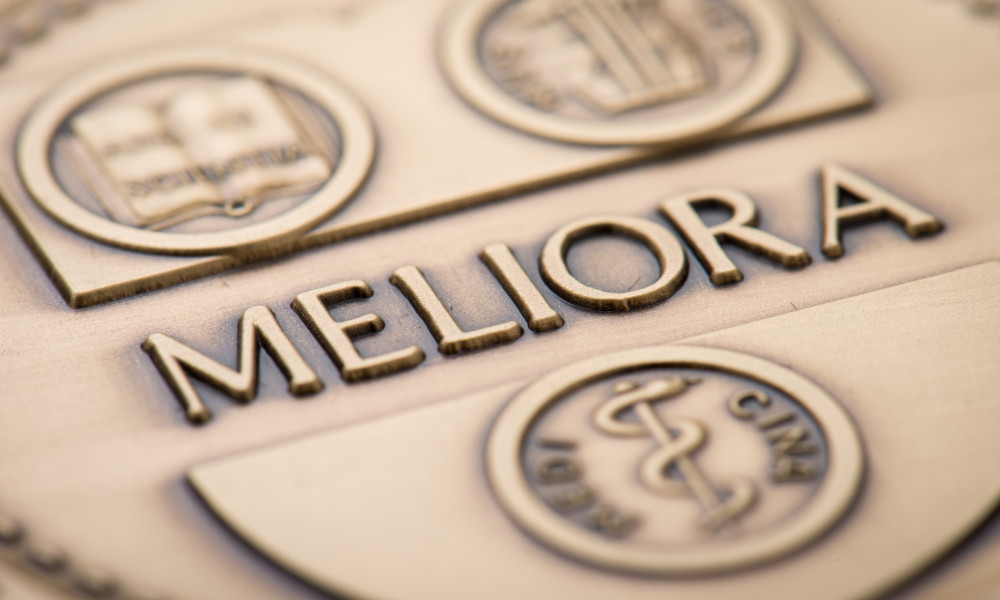The health, behavior, and society major is studying from Cleveland but looks forward to a familiar feeling of “home and safety” when she joins classmates for commencement.
Mary Halm ’21 felt a connection with the University of Rochester the first time she heard about it.
“I went to a Montessori school with an open curriculum like Rochester,” the Cleveland native says. “My guidance counselor thought it would be a perfect fit. I came here the spring of my junior year and fell absolutely in love. I couldn’t wait to become a student here.”

Celebrate the Class of 2021!
Visit the Class of 2021 site for details about this year’s Commencement ceremonies and for a downloadable toolkit of materials to share your support on social media.
During her first two years on campus, the health, behavior, and society major joined the University’s Royals Dance Team and Ballet Performance Group, became a resident advisor in Susan B. Anthony Halls, and a D’Lion to help new students transition to college life.
“I felt very involved,” she says.
It all stopped in March 2020, when the University closed its campuses and went to remote instruction due to the COVID-19 pandemic. Halm returned to Cleveland, then decided to stay there when fellow students were allowed to return to Rochester in the fall. She has spent her senior year as a remote student, working in the home she shares with her mother and stepfather.
“Ultimately, I chose to protect my mental health over any other desires I may have,” she says. “The pandemic has been a stressor for everyone, and I know I would isolate myself (on campus) because I would be worried about potentially getting sick, or worse getting someone else sick and not know it.”
She’s still involved, even from Cleveland. During the pandemic, Halm has served as a peer health advocate for University Health Service, helping fellow students make healthy lifestyle choices, and worked for the Monroe County Family Access and Connection team (FACT) in Rochester, a program designed to help families experiencing difficulties with children under 18. Last fall, while studying in Cleveland, she became a UR Connected coach, helping students relieve stress.
The remote experience has been a good one. “It helps that my professors have been more than understanding and supportive of my working remotely,” she says. “I have more jurisdiction and control of my environment. And a lot of my family’s birthdays happen during the school year, so I’ve gotten to spend some quality time with them.”
But there are challenges, she says. “It’s hard experiencing your last year of college from home, and I miss seeing my friends. We keep in touch and have regular virtual hangouts.”
Although campus remains closed to visitors this spring, remote students are allowed to participate in commencement ceremonies if they meet testing and vaccination requirements. Halm has done that, and she’ll see her friends and classmates in person for the first time in 14 months when she returns to Rochester for the Arts, Sciences & Engineering undergraduate commencement ceremonies, held May 20 to 22. “I’m looking forward to a feeling I haven’t had in a long time—the feeling of home and safety,” she says. “I chose Rochester because it felt the most comfortable to me. I look forward to experiencing that feeling one more time when I walk the stage.”
In September, Halm will begin a public service fellowship, working with the Cleveland Transformation Alliance in support of the Cleveland Municipal School District, to make education more accessible to minority families. Her biggest takeaway from her time at the University is the relationships that helped her grow.
“The personal connections will last through all of the challenges, and there are professors who have become mentors,” she says. “These are the people I can go to after graduation and say, ‘I need some support in this.’ That’s a great feeling.”




